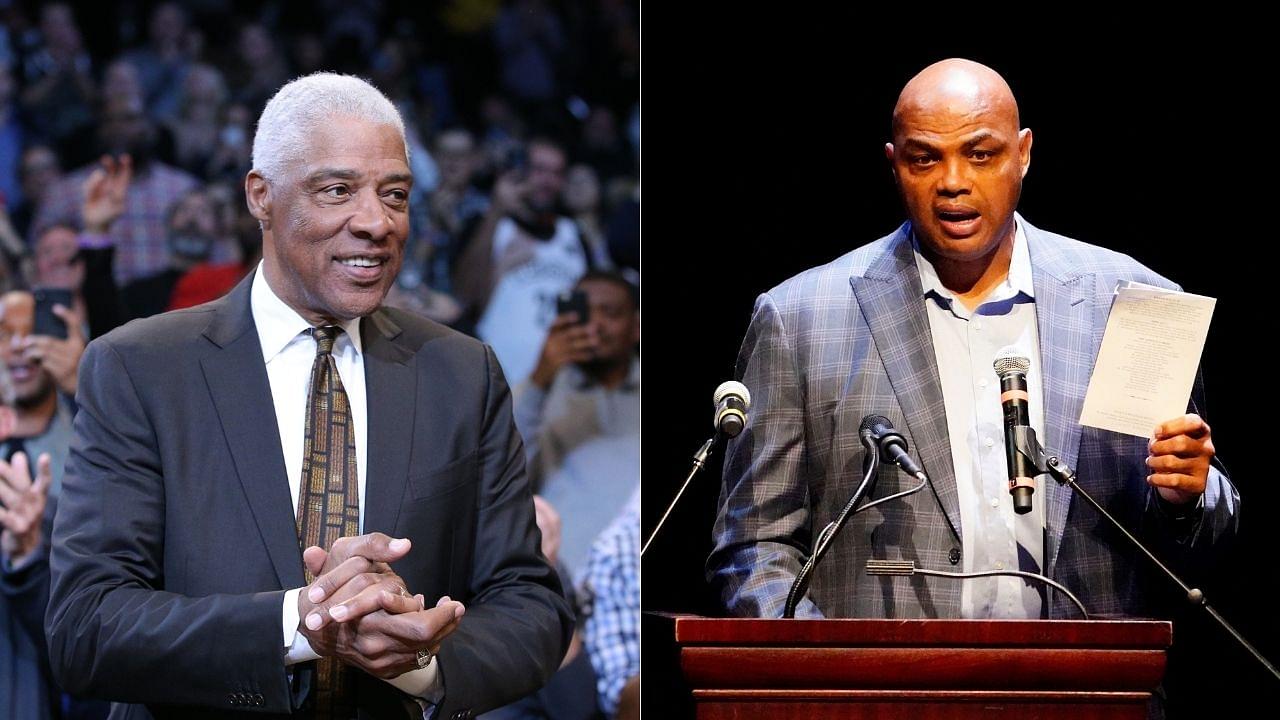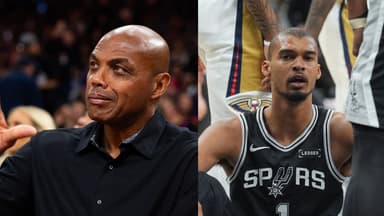Without the guidance of Moses Malone and Dr. J, Charles Barkley might well have finessed his way out of the NBA one way or the other.
Advertisement
NBA players today play in a very different sports league from what it was back in the 80s. The money involved in basketball was exponentially lower back then. A lottery pick earns 8 to 12 times today what Larry Bird and Magic Johnson earned in 1984.
The pay scale for progressively worse players than these two was proportionately lower as a result. Charles Barkley, the no. 5 pick in the 1984 NBA draft, signed a rookie contract that paid him $250k that year.
This meant that unlike today’s young rookies, those youngsters had to be much more financially responsible. They still led a life of comfort, but they couldn’t just go and buy whatever, whenever they wanted.
As a country lad never exposed to this amount of money, Chuck could’ve squandered his NBA wealth quite easily. But the Chuckster says that advice from the league’s most recognizable superstar of the 70s prevented that from happening.
Charles Barkley recounts how Julius Erving curbed his spendthrift habits
Charles Barkley was recently interviewed by Kevin Durant on the Nets superstar’s ETCs podcast. This was a tête-à-tête between probably the 2 biggest characters from their players’ generations. And the Chuckster lived fully up to the billing.
He also revealed several little-known facts about who shaped his career and his personality. Chuck was profusely thankful especially to two Sixers legends in Moses Malone and Julius Erving. He credits the former with motivating him to lose 50 pounds and become NBA-ready.
Dr. J, meanwhile, was a financial mentor. In addition to guiding Chuck on the intricacies of dressing as a gentleman, Julius Erving also imparted some financial wisdom to the then-22-year-old (16:30 mark):
“One day, he (Julius Erving) says ‘Charles, how many cars do you have?’ I said 5. Then he said ‘Well how many of them can you drive at the same time? Why do you have 5 cars?’ I didn’t have a good reason.”
“Son, take all those cars back and get one nice car. This money you make, you’ve got $400,000 sitting around in your driveway. That money’s going to be worth millions, 5, 10, 15. That’s why I say to all these young kids ‘You can have 1 car, and 1 house.'”







